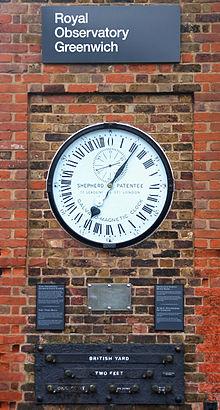 One of the most interesting things about the real-time media marketplace is the way it is redefining how we think about time. Unlike other so-called real-time
marketplaces, like Wall Street’s financial markets, there are no “opens” or “closes” -- media inventory is constantly traded on Madison Avenue’s ad exchanges, 24/7,
and increasingly, in every time zone. I’ve written about that first point a number of times, but the second point -- the globalized nature of real-time media markets, and its implications -- is
just starting to hit me.
One of the most interesting things about the real-time media marketplace is the way it is redefining how we think about time. Unlike other so-called real-time
marketplaces, like Wall Street’s financial markets, there are no “opens” or “closes” -- media inventory is constantly traded on Madison Avenue’s ad exchanges, 24/7,
and increasingly, in every time zone. I’ve written about that first point a number of times, but the second point -- the globalized nature of real-time media markets, and its implications -- is
just starting to hit me.
Maybe it’s the fact that, in the last 24-hours, I received news about real-time media market developments in
three different regions of the world: Asia-Pacific, Western Europe and Latin America. You can read about VivaKi’s Asia-Pacific news and OpenX’s push into Germany elsewhere in today’s
edition of RTM Daily. We reported on trading desk and DSPHeadway Digital’s expansion in Latin
America last week.
My point is that as more and more of the world’s media marketplace adapts
to real-time trading platforms, time zones will no longer distinguish geographic media boundaries -- only audience targets, demand from advertisers and agencies, and the prevailing cultural relevance
of publishers will.
It may seem like a small point, but I personally consider it a significant one, because as long as I’ve been covering
the World Wide Web, I’ve believed it to be global in nature, but learned that it’s not always the case in practice. I mean, take RTM Daily, for example. Like the rest of
MediaPost, we publish on the World Wide Web, and theoretically have a global reach, but according to Alexa.com more than two-thirds of our audience comes from good old USA. Only about 29% of our
readers come from “abroad,” and a surprisingly big chunk of that comes from India, followed by Canada, the U.K. and France.
I
suppose that order shouldn’t be surprising, given our focus on advertising technology, and the amount of development taking place in India, but my point isn’t about the geographic
representation of our audience, or of publishing in general. It’s the notion that having a global playing field doesn’t necessarily mean you have a global marketplace. That still requires
infrastructure, content, and perhaps most importantly, an understanding of the cultural and regional differences across the globe. McLuhan may have foreseen that we would someday be a “global
village,” but up until now, the application of that was “think global, act local.”
Now thanks to a lot of infrastructure being put into
place in regional trading markets, I believe we will see the emergence of a truly global media marketplace, where the buyers and sellers of media -- or more likely, their programmatic systems -- can
trade in real-time, irrespective of national boundaries, except for the cultural ones defined by audiences, publishers and brands. Only then, can we ask the question, “What does Greenwich Mean
Really Mean?”